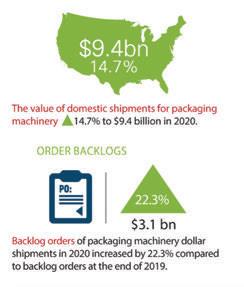
2 minute read
NEWS
Survey: Manufacturers Must Step Up the Sharing of DSCSA-Required Transaction Data
In September, the HDA Research Foundation published its inaugural EPCIS Implementation Benchmarking Survey, gauging the current state of industry adoption of GS1 Electronic Product Code Information Services (EPCIS), as well as trading partner plans for exchanging DSCSA-required data. Results off ered some startling statistics. 59% of manufacturers report they are not currently sending data to distributors; manufacturers cite “delays due to either past or potential future enforcement discretion” as the top obstacle to implementing EPCIS (43%). Most distributors are not connected to manufacturers in production today, and no connections in a production environment currently exist with distributors’ dispenser customers. Visit HDA’s Resource page for the FREE report download at hda.org. —Keren Sookne
DHL Express Aims at Sustainable Aviation
DHL Express announced that they were the fi rst to order 12 fully electric Alice eCargo planes from Eviation, a Seattle-based global manufacturer of all-electric aircraft. This represents a pioneering step for DHL, with sights set on building an electric Express network. Eviation’s Alice is reportedly designed to enable airlines—both cargo and passenger—to operate a zero-emission fl eet.
Alice can be fl own by a single pilot and carries 1,200 kilograms (2,600 lbs). Eviation expects to deliver the Alice electric aircraft to DHL Express in 2024. “We fi rmly believe in a future with zero-emission logistics,” says John Pearson, CEO of DHL Express. —Keren Sookne
Global Economy Passes Pre-COVID GDP; Risks Remain
In the second quarter of 2021, the global economy surpassed the pre-pandemic GDP from fourth quarter 2019, according to PMMI State of the Industry: U.S. Packaging Machinery Report by PMMI Business Intelligence. The Asia-Pacifi c region completed its recovery in late 2020, while the U.S. likely peaked in May 2021. Africa and Middle East regions are expected to follow suit in the third quarter, with Europe and Latin America completing recovery in the fourth quarter. COVID-19 remains a risk to economic outlooks in places where vaccination rates are lagging, including emerging and developing countries where vaccine campaigns are just beginning and will extend into 2022.
The rebalancing of severely disrupted global supply chains will take time. In May, supplier delivery times were the longest in survey history, according to the IHS Markit PMI™ global manufacturing survey, contributing to the steepest rise in input costs in over a decade and record infl ation in selling prices. Semiconductor shortages have also disrupted several industrial sectors, including automobiles and parts, household goods, and technology equipment. —Kim Overstreet









